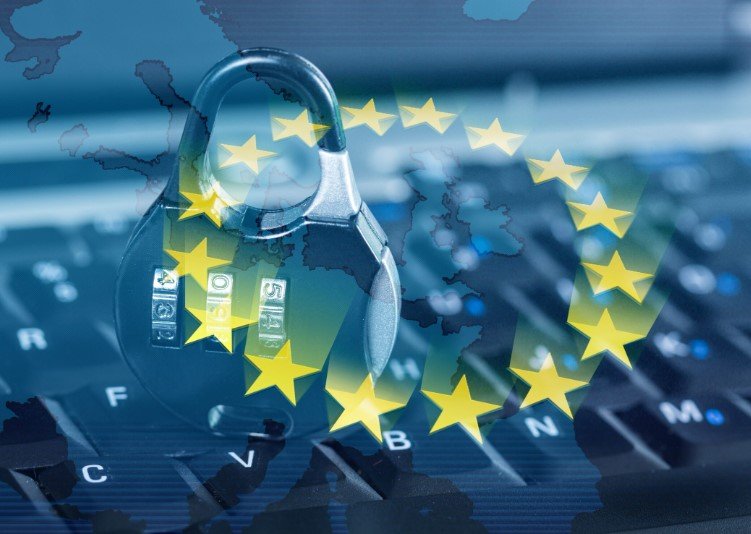The European Commission is standing firm on its tech rulebook, rejecting calls to bend to Washington’s pressure as both sides eye a broader trade deal.
EU tech chief Henna Virkkunen made it plain this week: the bloc’s signature digital laws — covering artificial intelligence, competition, and online speech — aren’t up for grabs. Not now, not later.
Brussels Doubles Down on Digital Sovereignty
Just days before high-level trade talks resume in Brussels, Virkkunen took a hard stance in an interview, insisting the EU’s cornerstone tech regulations are “based on our European values” and therefore non-negotiable.
That message landed like a cold splash ahead of Thursday’s meeting between EU Trade Commissioner Maroš Šefčovič and U.S. Trade Representative Jamieson Greer. The pair are reportedly working toward a deal that would ease transatlantic trade tensions — but digital policy, at least from Brussels’ view, is not part of the package.
This firm line arrives amid mounting U.S. complaints that Europe’s Digital Markets Act (DMA), Digital Services Act (DSA), and the AI Act unfairly target American firms like Google, Amazon, and Meta. The Biden administration had also questioned the regulatory burdens those rules could place on U.S. businesses abroad.

Europe’s Message to Washington: Our Rules Stay
Virkkunen’s remarks leave little wiggle room.
“These are very important rules for us to make sure that we have trustworthy technologies,” she said. “So, this is not part of trade negotiations from our side.”
That quote alone will probably ripple through boardrooms in Silicon Valley. American companies have lobbied hard to soften Europe’s new digital framework, with some pushing for tweaks through bilateral trade channels. But Brussels says no dice.
The Digital Services Act, which took effect for big platforms in 2023, forces companies to remove illegal content and be more transparent about algorithms and ads. The DMA, which applies to so-called “gatekeepers” like Google and Apple, is even tougher — setting strict dos and don’ts around self-preferencing, data sharing, and platform access.
And the AI Act, finalized in early 2025, takes it a step further. It bans certain uses of facial recognition, mandates transparency in algorithmic decision-making, and imposes stiff fines on violations.
A Familiar Transatlantic Friction Point
This isn’t the first time tech policy has created friction between Brussels and Washington. But what’s striking is how unapologetic the EU is now.
Over the past five years, the bloc has hardened its stance on digital regulation, seeing it as a pillar of European sovereignty — not just economics. And that framing, rooted in consumer rights and democratic oversight, has become Brussels’ shield against foreign lobbying.
The U.S. by contrast has long leaned on market forces and self-regulation, especially during the Trump administration. With that gap widening, officials in Brussels have grown weary of Washington’s attempts to water down EU law through backdoor trade talks.
At a press conference last month, Šefčovič warned that any tech-related “concessions” could threaten the credibility of EU regulation — particularly in the eyes of voters.
No One Wants Another Tech Cold War
Still, nobody’s itching for a showdown.
While Brussels is firm about its laws, it’s also keen on cooling broader trade tensions. The upcoming talks could still yield progress on tariffs, green subsidies, and cross-border data transfers — just not on digital rulemaking.
Here’s what’s still on the table, according to a senior EU official briefed on the talks:
-
Lower tariffs on industrial goods, especially EV components
-
Joint standards for clean tech subsidies
-
A political framework for cross-border cloud and data flows
But any attempt to bundle those with concessions on DMA or the AI Act would be a “non-starter,” the official said.
That may frustrate U.S. negotiators, but Europe’s political climate leaves little choice. With parliamentary elections looming in 2026 and digital rights a hot-button issue, Brussels simply can’t afford to appear weak on Big Tech.
Who’s Actually Feeling the Heat?
American tech firms are. And they’re not shy about it.
Meta has already appealed several parts of the DMA, while Apple is reportedly preparing its legal challenge for later this year. Amazon, too, has pushed back on being labeled a gatekeeper, claiming it operates more like a retailer than a digital gate.
Even Elon Musk chimed in earlier this spring, calling Europe’s AI Act “a slow-motion innovation killer.”
But European companies — from smaller cloud providers to media outlets — have largely backed the rules, arguing they level the playing field. Some even say the DMA has helped reduce predatory pricing and forced transparency on online platforms.
One lobbyist for a German publisher described it like this: “It’s finally not just the Wild West anymore.”
EU’s Tech Laws by the Numbers
To show just how deeply embedded these rules now are, here’s a look at their reach:
| Regulation | Year Passed | Key Targets | Enforcement Date | Max Penalties |
|---|---|---|---|---|
| Digital Services Act | 2022 | Meta, X, TikTok | 2023 (Big Tech) | 6% of global revenue |
| Digital Markets Act | 2022 | Google, Apple | March 2024 | 10% of global revenue |
| AI Act | 2025 | All AI Providers | Phased in 2025–26 | €35 million or more |
That’s not a regulatory wish list — that’s now binding law across all EU member states.
So Where Does It Leave Trade Talks?
In a bit of a bind, really.
Europe wants access to U.S. clean-tech markets and a reset on Trump-era tariffs. The U.S. wants breathing room for its tech giants and a seat at the table on future digital rules.
Both sides want a deal — but not badly enough to give up core principles.
As one Brussels diplomat put it: “We’re here to negotiate trade, not values. That line is clear.








